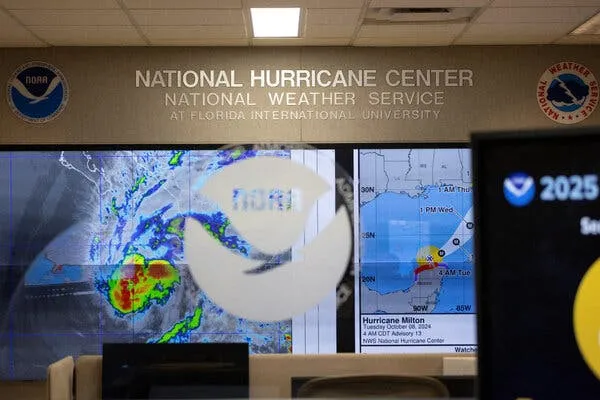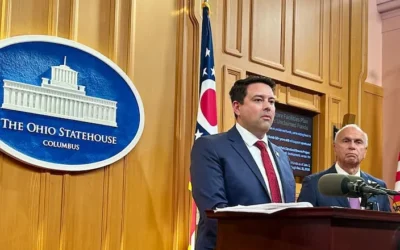The National Weather Service Reinforces Its Workforce
The National Weather Service (NWS) has recently announced its initiative to hire new staff following significant cuts experienced during the Trump administration. These cuts have raised serious concerns regarding the organization’s ability to effectively predict and respond to severe weather events, with experts like meteorologist John Morales voicing their apprehensions regarding the upcoming 2025 hurricane season.
A Call for Stability
The rationale behind the hiring spree is primarily focused on stabilizing the operations of the NWS, which has been facing challenges in its capacity to monitor and issue alerts for extreme weather phenomena. The previous reductions in operations prompted calls from various stakeholders emphasizing the need for skilled professionals who can enhance weather prediction capabilities. To this end, NWS leadership is actively working to reinstate positions that were eliminated, as well as to attract new talent into the organization.
Understanding the Impact of Earlier Cuts
The staff cuts in 2017 and the subsequent years had a profound impact on the ability of the NWS to perform its critical functions. A significant proportion of experienced meteorologists, operational forecasters, and support staff were let go, leading to heightened vulnerabilities in maintaining comprehensive weather monitoring and alerts. Furthermore, the reduction in resources limited the NWS’s capacity to utilize advanced technology and robust data analytics for real-time forecasting.
Morales’ Concerns About Future Hurricanes
As experts in meteorology stress the critical importance of having a well-staffed NWS, John Morales, a well-known meteorologist and climate expert, expressed his concerns particularly about the upcoming 2025 hurricane season. Morales pointed out that without adequate staffing, the NWS might struggle to issue timely alerts that can save lives and minimize property damage during severe weather events.
What Does the Hiring Mean for NWS Operations?
The renewed hiring efforts indicate a fundamental shift in acknowledging the importance of proactive planning and preparedness when it comes to extreme weather. With the increased frequency and severity of hurricanes and other natural disasters attributed to climate change, having a robust forecasting agency is more critical than ever. The hiring initiative is seen as a necessary foundational step in reshaping the NWS into a more resilient and responsive organization.
The Hiring Process
The hiring process for the NWS is set to be rigorous, with the organization looking for candidates who possess not only meteorological expertise but also the ability to communicate complex weather information to the public effectively. This demand is significantly important as the NWS is not solely focused on scientific accuracy; it also prioritizes how warnings and predictions are conveyed to ensure the safety of communities.
Resource Allocation and Technological Investment
Aside from staff recruitment, the NWS is also focusing on enhancing its technological resources. The organization has plans to invest in advanced weather monitoring systems, data analytics tools, and improved modeling software which are essential in adapting to the fast-evolving landscape of climate science. Efficient allocation of these resources can significantly impact accuracy in forecasts.
Why the National Weather Service Matters
The NWS, as an arm of the National Oceanic and Atmospheric Administration (NOAA), plays a pivotal role in protecting the lives and property of Americans. It issues real-time weather alerts that help inform communities, allowing for timely evacuations and preparations during storms, floods, and other dangerous weather conditions.
The accuracy and reliability of NWS forecasts are essential for local governments, emergency services, businesses, and individuals alike. With climate change enhancing the unpredictability and intensity of storms, these forecasts become even more crucial.
A Broader Conversation About Climate Change
As the NWS gears up for higher operational capacity, the dialogue surrounding climate change and its effects is growing louder. Meteorologists, environmental scientists, and policymakers are increasingly calling for enhanced investments in climate research and mitigation strategies. Hurricanes that have been dubbed “unprecedented” or “historic” in recent years are becoming more common, and many experts argue that having responsive institutions is key to managing the effects of climate change.
The Role of the Community
It is equally important for local communities to engage with the NWS and participate in preparedness efforts. Educational initiatives and community outreach programs can empower citizens to understand weather patterns and their potential impacts better. The incorporation of community feedback and close collaboration with local agencies will create a multifaceted approach to weather readiness.
Conclusion
The recent hiring announcement from the National Weather Service signals a renewed commitment to ensuring safety and preparedness in the face of increasingly severe weather conditions exacerbated by climate change. While resources have been stretched thin in past years, the NWS’s strategic hiring of qualified professionals and investment in technology are seen as pivotal measures to uphold the agency’s mission. As we look toward the uncertain future of hurricane seasons ahead, proactive steps now may help safeguard lives and foster resilient communities.
Final Thoughts
In the ever-evolving domain of climate science and meteorology, the NWS stands at a critical juncture. As they welcome new hires, the nation holds its breath, hoping that the measures taken today will protect them from the storms of tomorrow.







